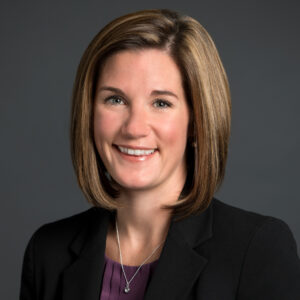The Legal Intelligencer
With a growing number of townships, boroughs and cities experiencing fiscal challenges, many municipalities have increased or are considering increasing their fees related to the administration of their zoning, subdivision and land development, and related ordinances as a means of generating additional revenue.
On one hand, it certainly is prudent for municipalities to examine and, where appropriate, to increase their fees to cover their actual administrative costs. However, they need to proceed cautiously when doing so. If the fees are not reasonably commensurate with the cost of services performed, they will be viewed as a “back-door tax” and be subject to legal challenge.
The Municipalities Planning Code, 53 P.S. Section 10101 et seq., which establishes the framework for zoning and land use regulation in Pennsylvania, expressly authorizes municipalities to charge fees in an amount sufficient to offset the costs borne by a municipality in processing and administering applications.
Specifically, the MPC authorizes municipalities to charge fees related to: (1) processing applications and reviewing plans filed under a subdivision and land-development ordinance, including fees to cover the “reasonable and necessary charges by [a] municipality’s professional consultants for review and report thereon”; (2) administering a zoning ordinance; and (3) conducting hearings before the zoning hearing board, including fees to cover the “compensation for the secretary and members of the zoning hearing board, notice and advertising costs and necessary administrative overhead connected with the hearing.”
A municipality’s authority to charge land-use permitting fees, however, is not without limitation. It is a well-settled principle of Pennsylvania law that these fees must be reasonable and commensurate with the cost of the services performed by the municipality. A party wishing to challenge a fee has at least two options.
First, a zoning or subdivision and land-development ordinance fee can be contested by filing a validity challenge with the municipality’s zoning hearing board. Second, an individual or corporation may file a verified claim under Pennsylvania’s Local Tax Collection Law, 72 P.S. Section 5511.1 et seq., for a refund of any payment, plus interest, within three years of making the same. Regardless of the manner in which a fee is challenged, the challengers bear the burden of proving that the fee is unreasonable or excessive, as in Talley v. Commonwealth, 553 A.2d 518, 520 (Pa. Commw. Ct. 1989), and Martin Media v. Hempfield Township Zoning Hearing Board, 671 A.2d 1211, 1215 (Pa. Commw. Ct. 1996).
Although there is no statutory or judicially established bright-line limit imposed on zoning and land-userelated fees, lawsuits challenging the excessive nature of such fees are not foreign to Pennsylvania courts.
For example, the Pennsylvania courts addressed the reasonableness of a municipality’s building permit fees in Skepton v. Borough of Wilson, 755 A.2d 1267, aff’d 755 A.2d 1267 (Pa. 2000). There, a group of contractors hired to build a new high school challenged building permit fees totaling approximately $88,000 and $22,000 as excessive. The fees were calculated based upon each contractor’s bid or contract price. In an attempt to justify the fees, the municipality argued that the fees were necessary to offset the expense of regulating, inspecting, enforcing and administering oversight or control of the construction project. However, the municipality’s documented expenses incurred in overseeing the construction project totaled only $1,234, or approximately 1 percent of the fees imposed. In light of this documentary evidence, the trial court, emphasizing that the challenged building permit fees were grossly disproportionate to any costs incurred by the municipality and imposed primarily for the purpose of raising revenue, ordered the municipality to fully refund the fees.
On appeal, the Commonwealth Court affirmed the trial court’s order with respect to the illegal nature of the fees. However, it reversed the trial court’s order concerning the contractors’ rights to a refund, explaining that “because the contractors had included the relevant fee expenditures in their bids and had been reimbursed this amount by the school district, the contractors had suffered no injury.”
Acknowledging that the municipality’s building permit fees were unreasonable and excessive, the Pennsylvania Supreme Court granted allocatur to solely review the issue of whether a municipality must refund the excessive, and thus illegal, permit fees to the contractors.
Finding the Commonwealth Court’s analysis at odds with the plain and unambiguous language of the Local Tax Collection Law, the court reversed, holding that “a taxpayer that establishes that it is entitled to a refund of monies paid to a political subdivision to which that entity was not legally entitled, is to receive a refund, regardless of whether the taxpayer was able to pass on the costs of the illegally collected taxes.”
Similarly, in Martin Media, the Commonwealth Court addressed a challenge to an annual license fee on billboards. There, a media company, which owned and maintained 62 billboards located within Hempfield Township, challenged the township’s annual $100 per billboard license fee, which was imposed by the township to confirm a sign’s continued status as a lawful use, on the basis that the fee was grossly excessive and bore no reasonable relationship to the township’s costs of regulating billboards.
Following a hearing, the zoning hearing board upheld the license fee and, on appeal therefrom, the trial court affirmed. The Commonwealth Court, however, reversed. In doing so, the court emphasized that the township failed to produce proper proof of many of its costs, such as logs maintained by its officers of the time spent performing inspections, and concluded that because the license fee was disproportionate to the township’s actual service costs, it constituted an illegal, revenue-producing tax.
Skepton and Martin Media represent only a sampling of the excessive-fee-related lawsuits decided by the Pennsylvania courts. A comprehensive review of the case law on excessive fees indicates that municipalities should take caution when implementing any of the following fee structures:
· Fees based on square footage or construction costs. Fees based on the size of a structure or the estimated cost of construction are particularly susceptible to challenge because a municipality’s administrative costs associated with processing and regulating a project likely will not increase at the same rate as a project’s size or cost.
· Fees charged per temporary structure. Temporary structure fees have become an issue with the growth of the oil and gas industry across Pennsylvania because oil and gas extraction companies often utilize temporary trailers at well sites. Similar to fees based on square footage or cost of construction, permit fees imposed on a per-structure basis may escalate quickly, while the municipality’s related administrative costs remain fairly constant.
· Annual fees. Flat-rate fees charged on an annual basis, such as the annual $100 per billboard license fee in Martin Media, are susceptible to challenge on the basis that a municipality’s regulatory administrative costs are likely higher during the first year of regulation than subsequent years. Consequently, an applicant may be charged a fee disproportionate to the municipality’s costs associated with administering or regulating a project or structure after the project or structure is substantially completed. Where annual inspections or other ongoing administration is necessary, a municipality must determine whether its administrative costs will decrease after the first year and adjust its fees accordingly.
· Large, nonrefundable fees. Large, nonrefundable fees are problematic because any money remaining after all administrative costs are paid will constitute illegal tax revenue. Therefore, if a municipality wishes to charge a large, upfront fee for a specific type of hearing, it should consider refunding any portion of the fee remaining at the conclusion of the hearing. In summary, a municipality should proceed cautiously when considering increases to its current zoning and land-use-related fee structure, and closely examine the actual costs incurred in administering the regulations in question before acting. Failure to do so can prove to be costly, and could place the municipality at risk of costly litigation and ultimately an order requiring it to refund the fees, plus interest.
Blaine A. Lucas is a shareholder, and Krista-Ann M. Staley and Alyssa E. Golfieri are associates, in the public-sector services and energy and natural resources groups of Babst Calland. Lucas coordinates the firm’s representation of energy clients on land use and other local regulatory matters. He also teaches land use law at the University of Pittsburgh School of Law. Staley focuses her practice on representation of energy clients on land use and other local regulatory matters. Golfieri focuses her practice on zoning, subdivision, land development, taxation, real estate, code enforcement, public bidding and contracting matters.
*Reprinted with permission from the 7/7/15 issue of The Legal Intelligencer. © 2015 ALM Media Properties, LLC. Further duplication without permission is prohibited. All rights reserved.

